 Dr Holly Crossen-White has had a conference paper accepted for National Programmes Conference: Museums and Digital Memory Conference to be held at the British Museum in September. The paper will be presented with Dr Trudie Cole, Head of Access and Participation, The National Museum of the Royal Navy. Trudie and Holly have previously worked on several research projects related to the use of digital archives and this gives them opportunity to apply their findings within the context of collections held by the National Museum of the Royal Navy. Holly’s research interest in digital archives arose through her PhD which explored the hidden history of illicit drug taking during the early twentieth century. Holly has published on the ethical issues of undertaking research using digital archives and has been awarded Faculty Seedcorn Funding with her colleague Dr. Angela Turner-Wilson for some of this research work.
Dr Holly Crossen-White has had a conference paper accepted for National Programmes Conference: Museums and Digital Memory Conference to be held at the British Museum in September. The paper will be presented with Dr Trudie Cole, Head of Access and Participation, The National Museum of the Royal Navy. Trudie and Holly have previously worked on several research projects related to the use of digital archives and this gives them opportunity to apply their findings within the context of collections held by the National Museum of the Royal Navy. Holly’s research interest in digital archives arose through her PhD which explored the hidden history of illicit drug taking during the early twentieth century. Holly has published on the ethical issues of undertaking research using digital archives and has been awarded Faculty Seedcorn Funding with her colleague Dr. Angela Turner-Wilson for some of this research work.
Category / Uncategorized
‘Science Playground’ at Festival of Learning
Researchers from across Bournemouth University (BU) hosted the ‘Science Playground’ event on 16th July as part of this year’s Festival of Learning. The aim of the event was to showcase the diversity of research happening across BU, with fun activities for children (and adults) to start conversations about the different research projects.
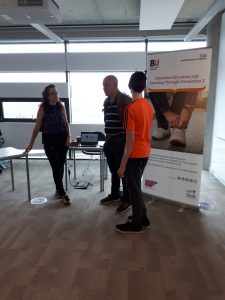
This included simulation activities and virtual reality experiences putting people into the shoes of a person with dementia, as Dr Michelle Heward from the Ageing and Dementia Research Centre showcased the Dementia Education And Learning Through Simulation 2 (DEALTS 2) programme which has been developed for Health Education England.
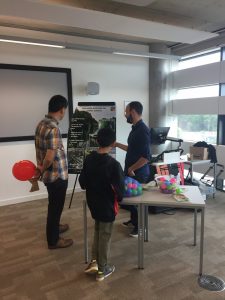
Hunting for jelly ‘lamprey’ worms in plastic mud as Dr Miguel Baltazar Soares from the Faculty of Science and Technology discussed his sea lamprey monitoring campaign in the River Frome.
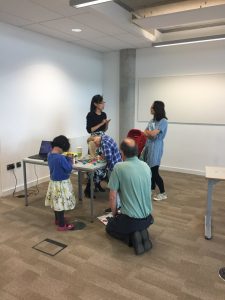
Whilst, Dr Huiwen Zhao from the Faculty of Media and Communications used arts and crafts to get feedback on her mass customization website design research.
Thanks to those who took part in the event which was organised by the BU Research Staff Association (RSA). To find out more about BU RSA please come along to our next coffee morning on Wednesday 25th July at 10am in F105, Fusion Building, Talbot Campus.
BU Research Staff Association
BU’s PGR Isabell Nessel presenting at the 13th Congress of the International Society for the Study of Fatty Acids and Lipids in Las Vegas
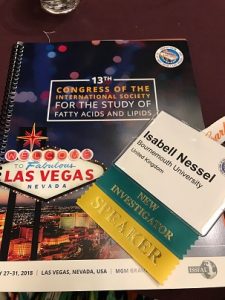
The International Society for the Study of Fatty Acids and Lipids (ISSFAL) www.ISSFAL.org held its 13th International Congress in Las Vegas, Nevada, USA at the end of May. After a very informative Satellite Symposium (Arachidonic and docosahexaenoic acids in infant development), the Congress started with a welcome reception in the Tropicana Hotel. This was not only well attended by the approximately 500 delegates from all over the world, but also Elvis Presley and Frank Sinatra made an appearance.
The following 3 days were packed with excellent and informative sessions about General Nutrition, Maternal and Infant Nutrition, Inflammation and Allergy, Clinical Trials 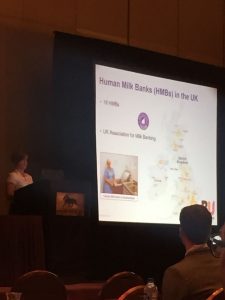 Methodology and Ketoneurotherapeutics. In between, well-known researchers in the field presented their research in plenary talks. Dr Michael Crawford obtained an omega-3 research award and Dr Maria Makrides was awarded with the Alexander Leaf Award. Her presentation entitled “Standing on the shoulders of giants: great women role models, mentors and advocates” was really inspiring.
Methodology and Ketoneurotherapeutics. In between, well-known researchers in the field presented their research in plenary talks. Dr Michael Crawford obtained an omega-3 research award and Dr Maria Makrides was awarded with the Alexander Leaf Award. Her presentation entitled “Standing on the shoulders of giants: great women role models, mentors and advocates” was really inspiring.
I would like to thank ISSFAL for the opportunity to present my PhD research. My presentation was entitled “Optimising LCPUFA content of donor human milk: A review of current milk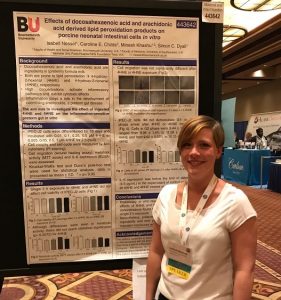 banking practices and recommendations for improvement”, presenting the results of our UK Milk Bank survey, which is now extended internationally. Furthermore, I had two posters displaying our work on preterm formula milk storage conditions and lipid degradation; and the effects of lipid degradation products on intestinal cells in vitro. These presentations gave me the possibility to position myself in the fatty acid research world and to make valuable contacts.
banking practices and recommendations for improvement”, presenting the results of our UK Milk Bank survey, which is now extended internationally. Furthermore, I had two posters displaying our work on preterm formula milk storage conditions and lipid degradation; and the effects of lipid degradation products on intestinal cells in vitro. These presentations gave me the possibility to position myself in the fatty acid research world and to make valuable contacts.
ISSFAL was especially taking care of us New Investigators, providing New Investigator Awards, organising a New Investigator social at the Mob Museum for networking with other researchers at a similar stage, as well as organising a meet the professor breakfast to talk to the experts in the field. One of the none scientific highlights was of course our trip to the Grand Canyon on the free day.
I would also like to thank my supervisors Dr Simon Dyall and Prof Minesh Khashu for their ongoing support as well as Gillian Weaver and Dr Caroline Childs for the fantastic collaborations. Furthermore, I would like to thank Bournemouth University and Santander for making this trip possible.
If you would like to learn more about our research, please feel free to contact me at inessel@bournemouth.ac.uk
Isabell

Doctoral College June NVivo Workshops – open to all
The Doctoral College is hosting two NVivo workshops. If you would like to attend either of these workshops please follow the instructions below.
- Introduction to NVivo – 19th June (click here to book)
- Advanced NVivo – 20th June (email pgrskillsdevelopment@bournemouth.ac.uk )
Please note that to book onto the Advanced NVivo workshop you need to attend the Introduction to NVivo first.
What students really want (and why it matters)
BU hosted Dr Diana Beech from the Higher Education Policy Institute on Wednesday morning for a policy breakfast, part of this year’s CELebrate symposium. In a packed room and despite the early start, we had a great discussion about student perceptions, value (and value for money).
Diana started with a review of the HEPI/AdvanceHE 2018 Student Academic Experience Survey, which was published last week. The survey was established in 2006, so is now in its 12th year, giving useful data trends. It surveys over 14,000 full-time undergraduate students in all years of study (not just final year students like the NSS). The full survey is available to download for free.
- It seems from the data, that contact time and private study have not changed much since 2006, despite the many changes in the sector, including growing student numbers, changes in funding etc. However, since 2012, when fees were increased, perceptions of value for money by the students surveyed have fallen consistently – until this year. This year the percentage of respondents saying that they believed that they were getting good, or very good value for money for their course, moved up from 35% to 38%. And the percentage saying they got poor, or very poor value for money went down from 34% to 32%. [Ed: These figures are often cited by Ministers, and were by Sam Gyimah at his speech last week (see our policy update last week for more on this topic) – “only [just over] a third of students think they get value for money” is the headline, and the government’s own initiatives in terms of a relentless focus on quality through the TEF, the new regulatory environment etc are credited with the improvement].
- Diana described how this year a new question had been asked about what the reasons were behind the rating that had been given for value for money – for those saying that they received good or very good value, the top 5 reasons (in order) were teaching quality, course content, course facilities, career prospects and quality of campus. On the other side, the top 5 reasons given by those who received poor or very poor value for money were tuition fees, teaching quality, contact hours, course content and cost of living. It is interesting that teaching quality and course content are levers for good or bad value for money, that concern about money is clearly linked to perceptions of poor value. It is also unsurprising to see contact hours linked to perceptions of poor value, but it may be of some surprise to see quality of campus linked to good value.
- So on contact hours, Diana noted that those students with the highest perceptions of value for money also seem to be studying subjects with the greatest overall workload. [Ed: This is not necessarily linked to contact hours – looking at contact hours the subjects seem to fall into three groups, with medicine, dentistry and veterinary and physical sciences standing out for the number of contact hours (15-19) and history, languages, business and social studies at the other end (8-10). The rest fall in the middle, but the chart looks at total workload including independent study and work outside the course].
- Diana also flagged another trend – the percentage of students saying that their experience has been better than they expected has fallen fairly consistently since a high point in 2013, and has fallen again this year from 25% to 23%. Again, when students saying that the experience was worse than expected (12%), teaching quality came top of the reasons, with course organisation [Ed: a familiar NSS question], lack of support in independent study, lack of interaction with staff, poor feedback (Ed: NSS again) and contact hours featuring again. The last two of the top 8 reasons were “not put in enough effort myself” (30%) and “too little interaction with other students” (26%).
- Diana talked about commuter students, who are less likely to be satisfied, and more likely to say that if they had known what they know now, would not have entered HE – along with those who are employed for more than 10 hours and Asian students. There is intersectionality here, Asian students and those who are employed for more than 10 hours have a higher propensity to be commuter students. Diana talked about her recent report for HEPI looking at the potential growth in undergraduates by 2030 (as many as 500,000 more) – and the possibility that many of those may be commuter students – a challenge for the sector given the concerns raised above.
- Developing this theme, Diana mentioned the recent paper written by Sir Anthony Seldon and Dr Alan Martin on the “positive and mindful university“.
- Diana referred to the HEPI/Unite Students report “Reality Check – a report on university applicants’ attitudes and perceptions”. One concern is that only 49% of applicants realise that rent will be their biggest cost apart from tuition fees. Diana discussed concerns about whether students understand where their tuition fees are spent, and the interesting response to the question about how tuition fees should be spent (teaching facilities (65%), teaching staff (60%), student support services (57%) come top, campus development (52%), financial support for students (49%) and research facilities and resources (49%) come next. Interestingly student recruitment and marketing are lower on the list (at 16% and 15%) and investing in the local community is supported by only 12%.
You can read Diana’s slides here.
We then had a Q and A and discussion session with a panel consisting of Debbie Holley, Lois Farquharson, Alex Hancox and Diana and chaired by Jane.
- We discussed commuter students and the particular issues of making the campus “sticky” for these students, particularly in relation to HSS students who live near work and final year students who may have put down roots in their placement year and becoming commuter students is one reason why they can find it hard to reintegrate in their final year (there may be other reasons too). [Ed: see an interesting article on Wonkhe this week on stickiness generally)
- We discussed issues linked to value for money – should we talk about value, and not focus on financial return [Ed: see last week’s policy blog for our take on the latest ministerial pronouncements about graduate salaries]
- We also talked about the wider value of university in terms of life experience, friendships, soft skills- and how this is important but often overlooked [Ed: there are a couple of interesting articles on this in last week’s policy blog]
- We talked about student information and the importance of making sure that applicants could access the information about the things that mattered for them, and how talking to students, and spending more time than just an open day, might be an important part of this. We discussed briefly the importance of students understanding how their fees are spent (which is in the survey) and how to do this better.
- In terms of expectations, Alex pointed out that students were overloaded with information in induction week and it was suggested that we need to follow up, drip feed etc.
- We talked briefly about tuition and living costs. Points were made about how challenges with living costs might be increasing the number of commuter students and affecting their outcomes. We also discussed the unhelpful terminology around loans, debt, value for money, tuition fees that are really “university fees”. [Ed: This is a very big subject, you might want to read BU’s response to the review of post-18 education and we gave links to other sector responses in our policy update on 4th May.]
- We talked about mental health and wellbeing – including about how some students might choose to live at home for support. We also discussed challenges with the definition of “living at home” – it may be different issues for mature students who have families than 18 year old students who live with parents – although the impact on extra-curricular engagement may be the same
- We talked about engaging students with research and equality of access to these sorts of opportunities for broader engagement
- We discussed the TEF and the use of splits data – are universities really using their splits data and is it driving change?
- In the context of contact hours, Alex made the point that quality of contact is as important as the amount – students may want more help not more lectures.
HEPI are interested in further research and policy publications, using this data or other data – please contact policy@bournemouth.ac.uk if you would like to discuss this further.
Many thanks to all who attended and we look forward to continuing the dialogue on many of these issues.
New BU publication: Wisdom & skills in social work education
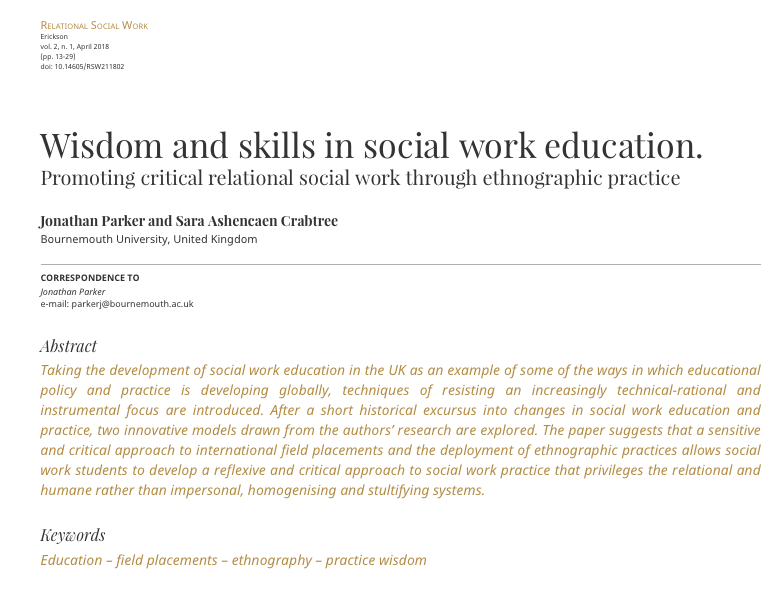 Congratulations to professors Parker and Ashencaen Crabtree in the Faculty of Health & Social Sciences on the publication of their latest paper ‘Wisdom and skills in social work education. Promoting critical relational social work through ethnographic practice.’
Congratulations to professors Parker and Ashencaen Crabtree in the Faculty of Health & Social Sciences on the publication of their latest paper ‘Wisdom and skills in social work education. Promoting critical relational social work through ethnographic practice.’
Reference:
- Parker, J.& Ashencaen Crabtree, S. (2018). Wisdom and skills in social work education. Promoting critical relational social work through ethnographic practice,
Doctoral College: Researcher Development Programme
The Doctoral C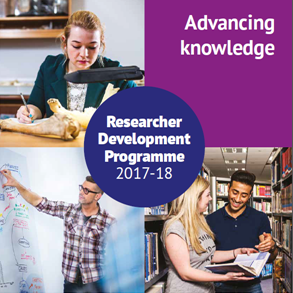 ollege would like to present the June monthly update.
ollege would like to present the June monthly update.
This monthly update is for PGRs and their supervisors to outline upcoming research skills and development opportunities including events, workshops and networking opportunities supported by the Doctoral College. In this update we would like to promote the Researcher Development Programme for June (which includes expert sessions), the PGR and Supervisor BBQ and the PGR Communities Questionnaire.
The Doctoral College is conducting research into PGR communities at BU and we would like to hear your views. The questionnaire is open to current PGRs and closes at 08:00 on Monday 18 June (no log-in required). Drinks vouchers are available for those who complete the questionnaire. Click here to complete the questionnaire.
We are also very happy to announce that the 1st Doctoral College PGR and Supervisor beach BBQ will take place on 27th June 2018. To purchase your BBQ ticket for £5 please come to the Doctoral College (Talbot Campus, DG02).
These exciting development opportunities are taking place now so check out our application processes and booking information to advance your current skills, knowledge and networks.
Don’t forget to check out the Doctoral College Facebook page.
Last CQR ‘In Conversation’ Seminar of the Academic Year Wed 1p.m.
Hope to see many of you on Wednesday at the last CQR lunchtime seminar of the season!
Wednesday, 6 June at 1 pm in RLH 201
with Jen Leamon and Jenny Hall “In Conversation” on
“Building Confidence through Creative Crafting”
They promise some hands on activities so do plan to come along and join in!

Open Letter to BMJ Editors on Qualitative Research
Led by MD and Qualitative Researcher, Trisha Greenhalgh from Oxford U., seventy six senior academics from 11 countries in an open letter invited The BMJ’s editors to reconsider their policy of rejecting qualitative research on the grounds of low priority. They challenge the journal to develop a proactive, scholarly, and pluralist approach to research that aligns with its stated mission. Read their letter here.
The Letter, first published in 2016, has been recirculating on social media recently, and deserves our attention.
Kip Jones, Director of BU’s Centre for Qualitative Research, also published a reply in the BMJ, supporting the letter and the health-related qualitative work being done at BU.
The Centre for Qualitative Research is always open to new members.
BU contribution to Routledge Handbook of Well-Being
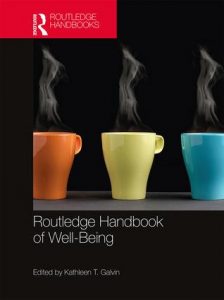 Congratulations to current and past academics in the Faculty of Health & Social Sciences and the Faculty of Science & Technology who contributed to the newly published Routledge Handbook of Well-Being. The editor Prof. Kate Galvin was previously based at Bournemouth University. She is currently Professor of Nursing Practice in the School of Health Sciences at the University of Brighton.
Congratulations to current and past academics in the Faculty of Health & Social Sciences and the Faculty of Science & Technology who contributed to the newly published Routledge Handbook of Well-Being. The editor Prof. Kate Galvin was previously based at Bournemouth University. She is currently Professor of Nursing Practice in the School of Health Sciences at the University of Brighton.
The following four chapters in the edited collection have been authored or co-authored by BU scholars and students past and present:
- Dwelling- Mobility: An Existential Theory of Well-being Chapter 8 by Les Todres & Kate Galvin
- Heritage and Well-being: Therapeutic places, past and present Chapter 11 by Timothy Darvill, Vanessa Heaslip & Kerry Barras
- Embodied Routes to Well-being: Horses and Young People Chapter 20 by Ann Hemingway
- Eighteen Kinds of well-being but there may be many more: A conceptual Framework that provides direction for Caring Chapter 30 by Kate Galvin & Les Todres.
Congratulations to all!
Prof. Edwin van Teijlingen
ADRC and HEE launch ‘DEALTS 2’ at Alzheimer’s Society Conference (22nd/23rd May) during Dementia Action Week
Prof Jane Murphy and Dr Michelle Heward from the Ageing and Dementia Research Centre (ADRC) were invited to join Health Education England (HEE) to launch the Dementia Education and Learning Through Simulation 2 (DEALTS 2) programme at the Alzheimer’s Society Annual Conference in London. The ADRC have been commissioned by HEE to develop and evaluate the DEALT2 programme across England.
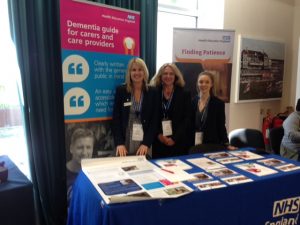
The DEALTS 2 programme was showcased on the HEE stand; providing a fantastic opportunity to launch the programme resources, which are now freely available to download on the HEE website. DEALTS 2 is a simulation-based dementia education programme for staff in acute hospitals across England. It is based on an experiential learning approach, placing hospital staff into the shoes of a person with dementia, to facilitate a positive impact on practice.
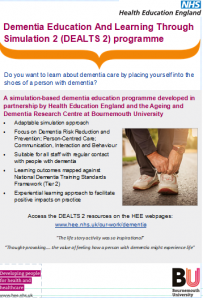
Throughout the two days at the conference there were many talks including those from members of the 3 Nations Dementia Working Group; Jeremy Hughes, CEO Alzheimer’s Society; Alistair Burns, NHS England; Minister Takashi Okada from Japan; and Carey Mulligan Alzheimer’s Society Ambassador (pictured below). The key message was that dementia is everyone’s business and we all need to commit to taking small or large actions to improve society for people with dementia.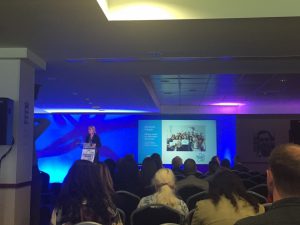
Your ‘Timely Reminder’ – don’t miss these events in June and July!
Every year, the Research & Knowledge Exchange Office, along with internal and external delivery partners, runs over 150 events to support researcher development through the Research & Knowledge Exchange Development Framework (RKEDF).
Responding to your feedback and by popular request, below are the main events coming up over the next two months – please click on the event titles that are of interest to find out more and reserve your place as soon as possible:
JUNE 2018
Wednesday 6th June – STEAMLab – Virtual problems – See this Blog post on how to Apply for a place
Monday 11th June – Research impact and the Research Excellence Framework (REF): an introduction
Wednesday 13th June – REF 2021 Guidance – Q&A session
Thursday 14th June – Royal Society – Bid Writing Retreat
Wednesday 20th June – BRIAN, Open Access and the Impact Module
Wednesday 27th June – Preparing for Brexit
27-29 June – Writing Academy – Summer
JULY 2018
Wednesday 4th July – US Funding Day (Federal & Charities)
Wednesday 4th July – Targeting high quality journals
Wednesday 4th July – 10 ways to increase the impact of your paper
Wednesday 4th July – Writing an academic paper
Thursday 5th July – Fellowship interview Training – Royal Society
Wednesday 11th July – Introduction to bibliometrics
Wednesday 11th July – Advanced Bibliometrics – Using bibliometrics to understand research impact
10/07/18 – 11/07/18 – Marie Sklodowska Curie – MSCA bid writing retreat (2 days)
Thursday 12th of July – Writing and presenting for non-academic audiences (ECR session) *New*
Monday 23rd July – The Writing Academy – Writing day
Tuesday 24th July – Preparing impact case studies for the Research Excellence Framework: a workshop
To see all the events within the RKEDF and the wider Organisational Development offering, please refer to the handy Calendar of Events.
Additionally if you are a PGR please visit the Doctoral College Researcher Development Programme for your own special tailored events.
Great day (and evening) at Brighton for arts-led interests

On Fri 15th June the University of Brighton will host an exciting event featuring over 29 talks, workshops, performances, installations and displays focused on arts and research for social change. Sessions will be delivered by over 40 academics, artists and community practitioners from around the world.
The event is open to everyone with an interest in the arts, research and social action, regardless of their experience in the arts or academia. The jam-packed, interactive daytime programme at Falmer Campus will be followed by an evening spoken word and music show at the Latest Music Bar in Manchester Street, featuring performances from Kate Fox, Joelle Taylor, Jacob Sam-La Rose and Quiet Loner.
Tickets are only £35, including lunch, refreshments and all events.
For further information and to register, go to: https://blogs.brighton.ac.uk/carnivalofinvention/ or check out our Facebook page: https://www.facebook.com/collaborative.poetics/
Tickets are only £35, including lunch, refreshments and all events.
Medical Research showcase at CoPMRE’s Spring Visiting Faculty Day
The Centre of Postgraduate Medical Research & Education (CoPMRE) held its Spring Visiting Faculty Day at the Executive Business Centre. Fourteen posters (VF Programme Spring 2018) were presented showcasing the breadth of collaborative projects being undertaken by BU and local clinicians. The Best Poster prize was awarded to Dr Paul Whittington, Department of Computing & Informatics, Faculty of Science and Technology, for his presentation entitled Automatic Detection of User Abilities through the SmartAbility Framework. Professor Tamas Hickish, judge, felt that all the posters were excellent and address important health care issues. Paul’s poster was chosen as the research was generated by a deep understanding of disability, the use a mobile phone technology and generalisability to significant areas of health care need such as stroke and frailty. As such his work is scalable and feasible.
Visiting Faculty Days are a great opportunity to share innovative ideas and research. The event was very well received and links for possible further collaboration have already been formed as a result of networking. Our next Visiting Faculty Day will be held in December.
Two reviews by BU academics in the American Anthropologist in 2018
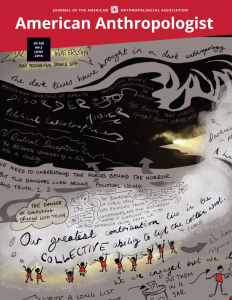 The first review by a Bournemouth University academic in the prestigious journal American Anthropologist was published in its February issue. Dr. Sue Sudbury who is Principal Academic in Media Production reviewed the film ‘The Anthropologist’ [1]. She wrote in this Open Access review that this film raises many interesting issues about the role of the anthropologist and deftly illustrates the divide that exists when different cultures come together. Her conclusion of the review is that ‘The Anthropologist’ is an intriguing and memorable film about environmental anthropologists and the important work they do collecting and telling the stories of people whose lives are being reshaped by climate change. It is also about the relationship between female anthropologists and their daughters. As such, it does an important job of introducing the subject and will no doubt generate discussion, but it is not an anthropological film and doesn’t claim to be.
The first review by a Bournemouth University academic in the prestigious journal American Anthropologist was published in its February issue. Dr. Sue Sudbury who is Principal Academic in Media Production reviewed the film ‘The Anthropologist’ [1]. She wrote in this Open Access review that this film raises many interesting issues about the role of the anthropologist and deftly illustrates the divide that exists when different cultures come together. Her conclusion of the review is that ‘The Anthropologist’ is an intriguing and memorable film about environmental anthropologists and the important work they do collecting and telling the stories of people whose lives are being reshaped by climate change. It is also about the relationship between female anthropologists and their daughters. As such, it does an important job of introducing the subject and will no doubt generate discussion, but it is not an anthropological film and doesn’t claim to be.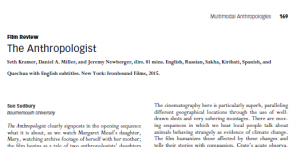
The second one, a book review this time, appeared this week in the June issue. Prof. Edwin van Teijlingen in Bournemouth University’s Centre for Midwifery, Maternal & Perinatal Health (CMMPH) reviewed the book Midwives and Mothers: The Medicalization of Childbirth on a Guatemalan Plantation by the American anthropologist Sheila Cosminsky [2]. He reminds the reader that some of the work in this book work has previously been published in articles, as clearly stated in the acknowledgments (p. xii). He highlights that “on reading the book I remembered with joy snippets from some of the articles on Doña María I read nearly thirty years ago while working on my PhD thesis.” Cosminsky does a great job of bringing together a lifetime of anthropological (field)work in a comprehensive and easy‐to‐read book.
It is not often that we see reviews written by BU staff in this impressive journal, let alone two in subsequent issues.
References:
- Sudbury S. (2018) The Anthropologist Seth Kramer, Daniel A. Miller, and Jeremy Newberger, dirs. 81 mins. English, Russian, Sakha, Kiribati, Spanish, and Quechua with English subtitles. New York: Ironbound Films, 2015, American Anthropologist 120(1): 169-170.
- van Teijlingen E. (2018) Midwives and Mothers: The Medicalization of Childbirth on a Guatemalan Plantation by Sheila Cosminsky, American Anthropologist 120(2): 369.
Calling all PGRs – Postgraduate Research Community Questionnaire

The Doctoral College is conducting research into postgraduate researcher communities and we would like to hear PGR views.
The questionnaire is now open and closes on Monday 18 June at 08:00.
Click here to complete the questionnaire.
Drinks voucher available for all those that complete the questionnaire.
If you have any questions please contact Natalie (nstewart@bournemouth.ac.uk) or Clare (ccutler@bournemouth.ac.uk)
HE policy update for the w/e 18th May 2018
Summit on BME Leadership in HE
This event was hosted by AdvanceHE, the new agency that was formed recently to include the Leadership Foundation for Higher Education, the Higher Education Academy and the Equality Challenge Unit.
Wonkhe have pointed out that:
- “So far only 45 out of 167 higher education institutions have signed the Advance HE Race Equality Charter’s principles [BU is one of them]. Of those 45, only nine have actually been formally recognised for demonstrating evidence of their commitment. The first wave of eight 2015 Charter award holders are reapplying for accreditation this summer.”
Baroness Valerie Amos spoke at this event on 16th May and also wrote in the Guardian. about leadership.
- “There are deep-seated prejudices and stereotypes which need to be overcome. University leaders need to acknowledge that we are not doing enough. The UK has some of the best universities in the world – but what is the point of that if we are not offering real equality of opportunity?”
Also in the Guardian on Wednesday was an article by Shakira Martin, President of the NUS, who spoke at the same event.
- “This year has also seen black students fighting back, rising up, taking to the streets, starting campaigns and writing powerful letters, like the three brave students from the University of Exeter, to say enough is enough. However, the onus should not be on them to tackle discrimination. The sector is pretty good at sharing best practice. This is one area where distinct, hardline initiatives are needed in abundance. Institutions must be bold. It only takes one or two to get serious about dealing with the issue head-on and others will follow suit.”
Launch of UKRI
UK research and Innovation have published its Strategic Prospectus which create a research and innovation system that is fit for the future and equipped to tackle the environmental, social and economic challenges of the 21st Century. As the press release outlines, the prospectus is the start of this process and over the next 12 months UKRI and its councils will continue to engage with their communities, the wider public, and undertake research, to further develop individual strategic delivery plans. Please see the following links for more information:
- Press release: UKRI will ensure everyone in society benefits from world-leading research and innovation
- UK Research and Innovation (PDF) – Strategic Prospectus: Building the UKRI Strategy
- UK Research and Innovation (Web) – Strategic Prospectus: Building the UKRI Strategy
UKRI will work with its partners to push the frontiers of human knowledge, deliver economic prosperity, and create social and cultural impact. It describes four underpinning areas key to delivering this:
- Leading talent – nurturing the pipeline of current and future talent
- A trusted and diverse system – driving a culture of equality, diversity and inclusivity and promoting the highest standards of research, collaboration and integrity
- Global Britain – identifying and supporting the best opportunities for international collaboration
- Infrastructure – delivering internationally-competitive infrastructure to ensure we have the best facilities to foster innovation and conduct research
Over the coming months, UKRI will be conducting research and consultation to further develop its approach to working with others and to answer a series of big questions. These include how to grow the economy across different regions of the UK whilst continuing to expand our existing world-leading excellence; how to reduce the gap in productivity and the best approaches to developing talent across the diverse population of the UK, providing the skills needs of the future.
UKRI Chief Executive Professor Sir Mark Walport said:
- “Our Strategic Prospectus has been developed to ensure that everyone in society benefits from the knowledge, innovation, talent and ideas generated from our funding. UK Research and Innovation builds on the excellence of our individual councils. We will work collaboratively with researchers, innovators and entrepreneurs to develop the most exciting ideas and innovative technologies and bring these to fruition. Delivering this success will take commitment, a collective effort and new, ambitious ways of working.”
Vision: • We will push the frontiers of human knowledge and understanding. • We will deliver economic impact • We will create social and cultural impact by supporting society to become enriched, healthier, more resilient and sustainable.
Values: Collaboration, Excellence, Innovation, Integrity
- On talent: We will:
- Seek to increase skills at all levels, to maintain a broad disciplinary skills base, and work with partners to identify key skills gaps and build capacity. We will support vocational education and apprenticeships alongside more traditional pathways through higher education. • Support individuals to move between business and research careers, creating opportunities to develop careers in ways that stimulate creativity and innovation.
- Back universities to develop vibrant research environments which act as magnets to attract and nurture talent.
- Support multidisciplinary teams when these are needed to conduct research and innovation. This will require the creation of more highly valued roles for technologists, data scientists and others for the teams that are needed to tackle tough challenges.
- Promote continuing professional development, accompanied by lifelong learning and training throughout the careers of researchers and innovators.
- On the system: We will:
- Drive change, both as an employer and through our research and innovation funding. • Embed equality, diversity and inclusion at all levels and in all that we do.
- Seek to create a culture that facilitates and safeguards the opportunities for all to be respected and treated fairly.
- Take an evidence-based approach, commissioning and funding research and evaluations to understand the issues, what interventions work – and what does not work. • Collaborate and engage with partners nationally and internationally, to gather evidence and ideas, to help catalyse and facilitate change.
- On Research culture: We will prioritise four related areas:
- Research and innovation ethics – norms that define acceptable behaviour and practice
- Conduct – the use of honest and verifiable methods in proposing, performing, and evaluating research
- Reproducibility – the ability to achieve commensurate results when an experiment is conducted by an independent researcher under similar conditions
- Analysis of funding mechanisms and metrics and their impact on culture
- On transparency: We will:
- Identify the highest value areas where UKRI can drive improvements to the open research system in the near to mid-term.
- Build on the expertise in Councils and the wider community to identify technological innovations that could transform open research.
- Engage with Government and external groups to ensure the UK continues to play a leading role in the international open research movement
Haldane Principle:
- “(page 9): 3 In engaging with UKRI, BEIS will have regard to the Haldane principle …..The HER Act defines more precisely how the Haldane principle will apply with respect to UKRI. For the science and humanities councils…. section 103 sets out that the Haldane principle is the principle that decisions on individual research proposals are best taken following an evaluation of the quality and likely impact of the proposals (such as a peer review process). Section 97 provides equivalent measures for the activities of Research England. Strategic, long term decision making requires input from both subject matter experts and central government, as explained in the written ministerial statement. This includes investment in large capital infrastructure and research treaties. The Haldane principle does not apply to the government’s funding of innovation and the activities of Innovate UK.”
Immigration
From Dods, referring to an article in Politico: May intervenes to speed up new UK immigration plan. The Government have purportedly brought forward plans to publish the Immigration White Paper before the summer recess. This new timetable, if accurate, means the White Paper will be published before the long-awaited Migration Advisory Committee’s report into the economics of immigration, due to be published in September. Formerly, Home Office officials had said this report would inform Government immigration policy, justifying the long delay in publishing the White Paper.
More definitely, the Commons Science and Technology Select Committee have announced a new inquiry into “an immigration system that works for science and innovation”.
- “The Committee published its report on “Brexit, Science and Innovation” in March, and has recently received the Government’s response. The report welcomed the Prime Minister’s call for a “far-reaching pact” with the EU on science and innovation. We had recommended that an early deal for science—including on the ‘people’ element—could set a positive tone for the rest of the trade negotiations, given the mutual benefits of cooperation on science and innovation for the UK and the EU. The Committee now intends to produce its own proposals for an immigration system that works for science and innovation, with the aim of completing this in advance of the MAC’s report later this year.”
The Committee Chair, Rt Hon Norman Lamb MP, said:
- “It was disappointing that the Government doesn’t see the need to secure an early science pact, and assumes that scientists are happy to just wait and see what’s in the Immigration Bill next year. We’re going to roll up our sleeves now and set out our proposals for an immigration system that works for the science and innovation sector.”
- “Today’s revelation that more than 1,600 IT specialists and engineers offered jobs in the UK were denied visas between December and March sends the message that the UK is not interested in welcoming science talent at the moment. The Government needs to work quickly to correct that impression.
The Committee will draw on the submissions to its previous Brexit inquiry and the sector’s submissions to the MAC to construct its proposals for the immigration system, but further input to this process is welcome on the following points:
- If an early deal for science and innovation could be negotiated, what specifically should it to contain in relation to immigration rules and movement of people involved with science and innovation?
- What are the specific career needs of scientists in relation to movement of people, both in terms of attracting and retaining the people the UK needs and supporting the research that they do?
- What aspects of the ‘people’ element need to be negotiated with the EU-27, as opposed to being simply decided on by the Government?
- On what timescale is clarity needed in relation to future immigration rules in order to support science and innovation in the UK?
The deadline for submissions is Wednesday 6 June 2018 – please contact policy@bournemouth.ac.uk if you would like to submit evidence to this inquiry.
Post-18 review
The Secretary of State for Education has written to the Chair of the Education Committee about the HE review:
- “You asked for clarification on how the Review of Post-18 Education and Funding will inform my department’s preparations for the next spending review, particularly with regard to further education. The Spending Review 2019 will provide an opportunity to set budgets and fund government priorities across the whole DfE remit from 2020-21 onwards. The Department’s preparation for the Spending Review will include consideration of any recommendations from the Review of Post-18 Education and Funding.”
Policy impact
I presented this week on engaging with policy makers, part of a regular series of workshops that we run at BU for academic and professional support staff. Read my blog here.
And while we’re talking about the “what”…did you know that government departments publish their areas of research interest? This is a guide to where research funds might go, and is useful if you are thinking about policy impact. The collection is here, and four new ones were added on Thursday:
- Ministry of Housing, Communities and Local Government
- Department for Education
- Department for Culture, Media and Sport
- Ministry of Justice
The DCMS one says “It is designed to encourage researchers and academics to explore those topics that could be of benefit to DCMS and our sectors and act as a starting point for future collaboration.”
Digital Health, Life Sciences
The government have published the annual report from the Bioscience and health technology sector database for 2017 – there are some interesting graphics and context for the strategic investment areas:
There is scope for an argument about focus on place for the industrial strategy here – the detailed maps in the main report highlight the weakness in the South West but opportunity for Bournemouth given our location almost in the South East and close to London.
And out on Monday, this report from the National Centre for Universities and Business:
- “To compete, the UK must ensure that its universities are as embedded into the digital health knowledge exchange process as those in California and Massachusetts. Furthermore, as the UK cannot outspend the US, our systems for procurement and deployment into the NHS, and the high quality of research in UK universities, must be connected more effectively in the ecosystem. We noted earlier that patients and consumers are willing to share their data for research – although there is a sensible debate about opt-in versus opt-out, and patient control over what might be shared – but there remain significant standardisation challenges across primary and secondary care systems that must be overcome to drive research excellence.”
Postgraduate loans and numbers
New data from the Office for Students shows an increase in postgraduate masters’ student numbers since the introduction of the postgraduate masters’ loan. · Read the news item in full on the Office for Students website.
The effect of postgraduate loans data – key findings (the survey uses HESA data)
- In 2016-17 postgraduate masters’ loans of up to £10,000 were introduced to assist students with tuition fees and living costs.
- In 2016-17 there was an overall increase in entrant numbers but only for students to eligible courses. The number for non-eligible courses decreased. Single-year transition rates straight from undergraduate degree to postgraduate study saw a similar increase in students to eligible courses.
- Age: The largest increase in entrant numbers on eligible courses and increase in transition rates have been for students aged 25 and under. Overall, the age profile of entrants to postgraduate study has changed slightly, with a larger proportion of younger students than in previous years.
- Gender: Male and female entrant numbers on eligible courses both show an increase. Similarly, there has been no difference between the genders in transition rates or loan take-up.
- Ethnicity: There has been a larger increase in entrant numbers on eligible courses for black students than for white students, which has resulted in a change in the ethnic composition of the postgraduate entrant population. The proportion of postgraduate entrants on eligible courses who are black has increased from 8 per cent in 2015-16 to 11 per cent in 2016-17.
- Disability: Disabled students comprised 12 per cent of the entrant population on eligible courses in 2015-16. However this has increased to 15 per cent in 2016-17.
- Educational disadvantage: The proportional increase in entrant numbers on eligible courses, and increases in one-year transition rates, has been greatest for students from the lowest-participation areas. This means that those from the lowest undergraduate participation areas are now more likely to enter postgraduate study immediately after undergraduate study than those from the highest participation areas.
- The proportion of students who were eligible for a loan and took one out was greatest among:
-
- students aged 25 and under on entry
- black students
- students who declared a disability
- students from lowest-participation areas.
- For all student groups, the proportion of graduates able to realise their intention to continue postgraduate studies has increased. However, the increase was greatest among:
-
- students aged 26 and over
- black students
- students who declared a disability
- students from lowest-participation areas.
The Intentions After Graduation Survey data., key points:
Between January and April 2017 final year undergraduates on first degree courses were invited to answer the survey about their intentions after graduation. Overall, nearly 83,000 final year students from 268 UK higher education providers that take part in the National Student Survey (NSS) responded to the Intentions After Graduation Survey. This analysis focuses on almost 70,000 students at 238 English providers.
While the students’ most frequent intention within six months from graduation is to ‘look for a job’ (around 50 per cent of respondents each year), there is a clear upward trend in the percentage of students who intend to undertake postgraduate (PG) study. Among 2016-17 respondents, more than one student out of five selected ‘further study’ as their intention after graduation.
For all students, the intention to continue studying becomes greater further in the future (i.e. more than six months after graduation). Of students who are certain or likely to study at PG level in the future, 55 per cent intend to look for a job or have already been offered a job when surveyed.
In terms of motivation, almost 70 per cent of the students who intend or are likely to continue studying selected ‘interest in the subject’ as a reason for their intention. Only 35 per cent of the students would continue to study, among other reasons, to get a better job or to open up more career choices.
Female students are more likely to intend to continue to study than male students, as are black students relative to other ethnic groups. Also, young students from the lowest-participation areas are more likely to state an intention to continue study relative to those from higher-participation areas
Other news
The Office for Students is recruiting for its committees – provider risk, quality assessment and risk and audit.
Care leavers will be boosted by a new £1,000 bursary payment if they choose to do an apprenticeship from August 2018, the Government announced on 17 May
Subscribe!
To subscribe to the weekly policy update simply email policy@bournemouth.ac.uk
JANE FORSTER | SARAH CARTER
Policy Advisor Policy & Public Affairs Officer
Follow: @PolicyBU on Twitter | policy@bournemouth.ac.uk
New Sociology book by BU’s Dr. Hyun-Joo Lim
Congratulations to Dr. Hyun-Joo Lim, Senior Lecturer in Sociology, on the publication of her book East Asian Mothers in Britain: An Intersectional Exploration of Motherhood and Employment. This book focus on how Chinese, Japanese and Korean mothers in the UK make sense of their motherhood and employment. It addresses questions such as: “What are the intersecting factors that shape these women’s identities, experiences and stories?”
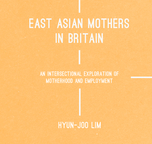 Contributing further to the continuing discourse and development of intersectionality, this book examines East Asian migrant women’s stories of motherhood, employment and gender relations by deploying interlocking categories that go beyond the meta axes of race, gender and class, including factors such as husbands’ ethnicities and the locality of their settlement. Through this, Dr. Lim argues for more detailed and context specific analytical categories of intersectionality, enabling a more nuanced understanding of migrant women’s stories and identities.
Contributing further to the continuing discourse and development of intersectionality, this book examines East Asian migrant women’s stories of motherhood, employment and gender relations by deploying interlocking categories that go beyond the meta axes of race, gender and class, including factors such as husbands’ ethnicities and the locality of their settlement. Through this, Dr. Lim argues for more detailed and context specific analytical categories of intersectionality, enabling a more nuanced understanding of migrant women’s stories and identities.
The book is published by Palgrave Macmillan (hardcover ISBN978-3-319-75634-9), see website: https://www.palgrave.com/gb/book/9783319756349
Prof. Edwin van Teijlingen

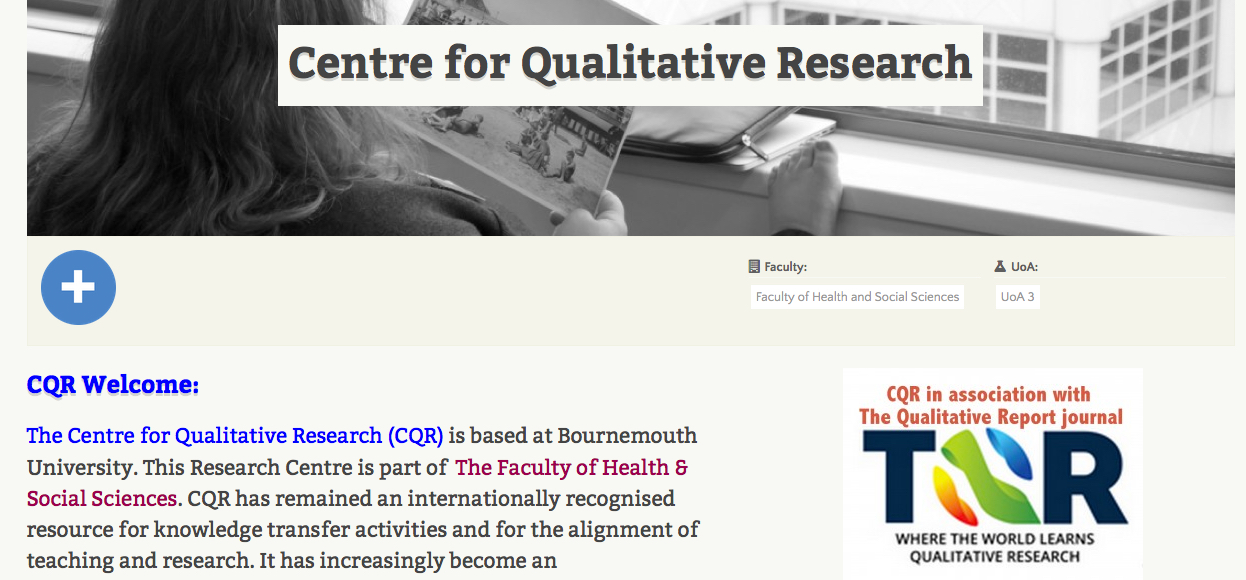












 FHSS academics teaching in Nepal
FHSS academics teaching in Nepal New weight change BU paper
New weight change BU paper One week to go! | The 16th Annual Postgraduate Research Conference
One week to go! | The 16th Annual Postgraduate Research Conference Geography and Environmental Studies academics – would you like to get more involved in preparing our next REF submission?
Geography and Environmental Studies academics – would you like to get more involved in preparing our next REF submission? Congratulations to three former BU staff
Congratulations to three former BU staff MSCA Staff Exchanges 2024 Call – internal deadline
MSCA Staff Exchanges 2024 Call – internal deadline Applications are now open for 2025 ESRC Postdoctoral Fellowships!
Applications are now open for 2025 ESRC Postdoctoral Fellowships! Horizon Europe – ERC CoG and MSCA SE webinars
Horizon Europe – ERC CoG and MSCA SE webinars MaGMap: Mass Grave Mapping
MaGMap: Mass Grave Mapping ERC grants – series of webinars
ERC grants – series of webinars